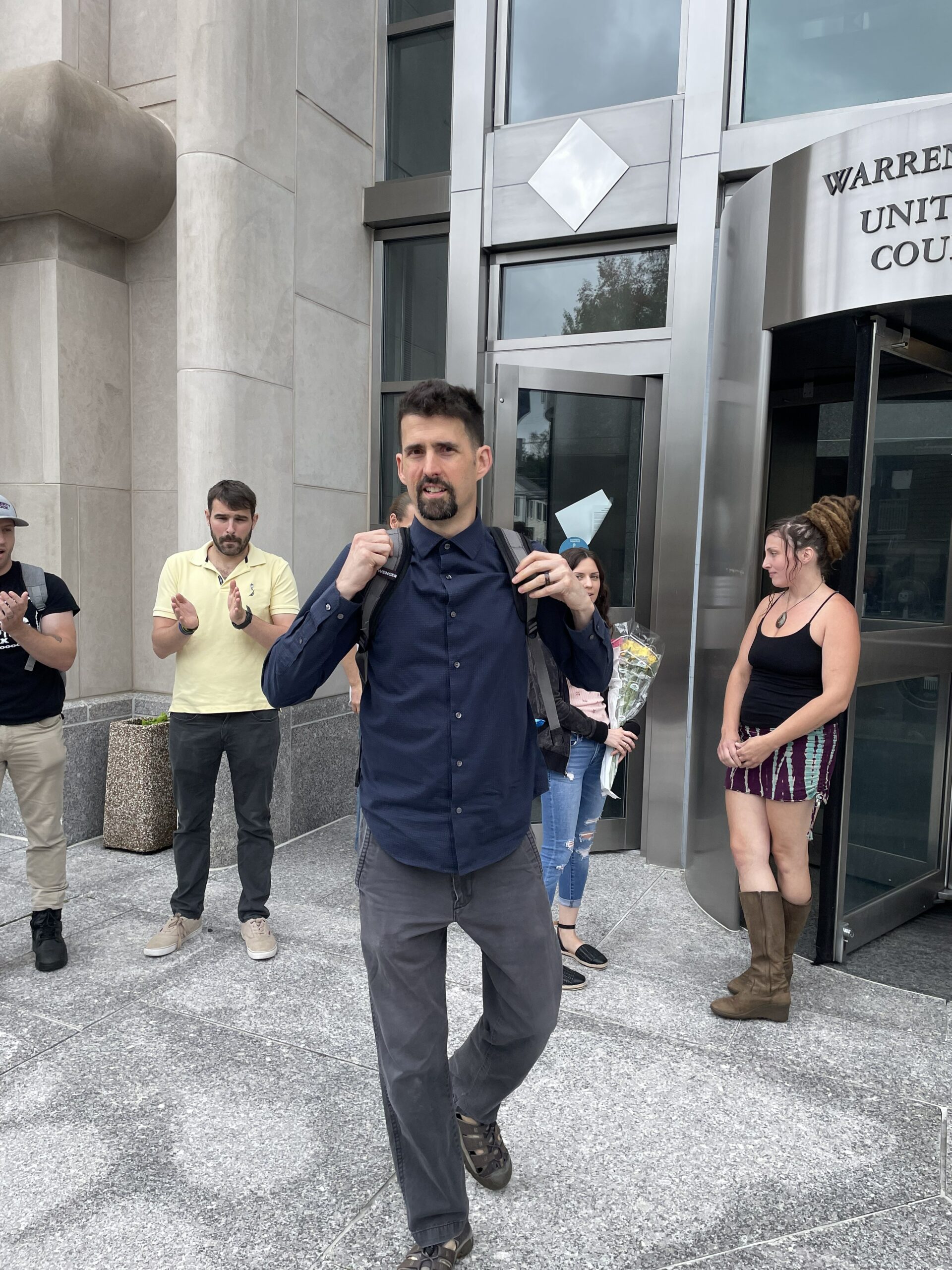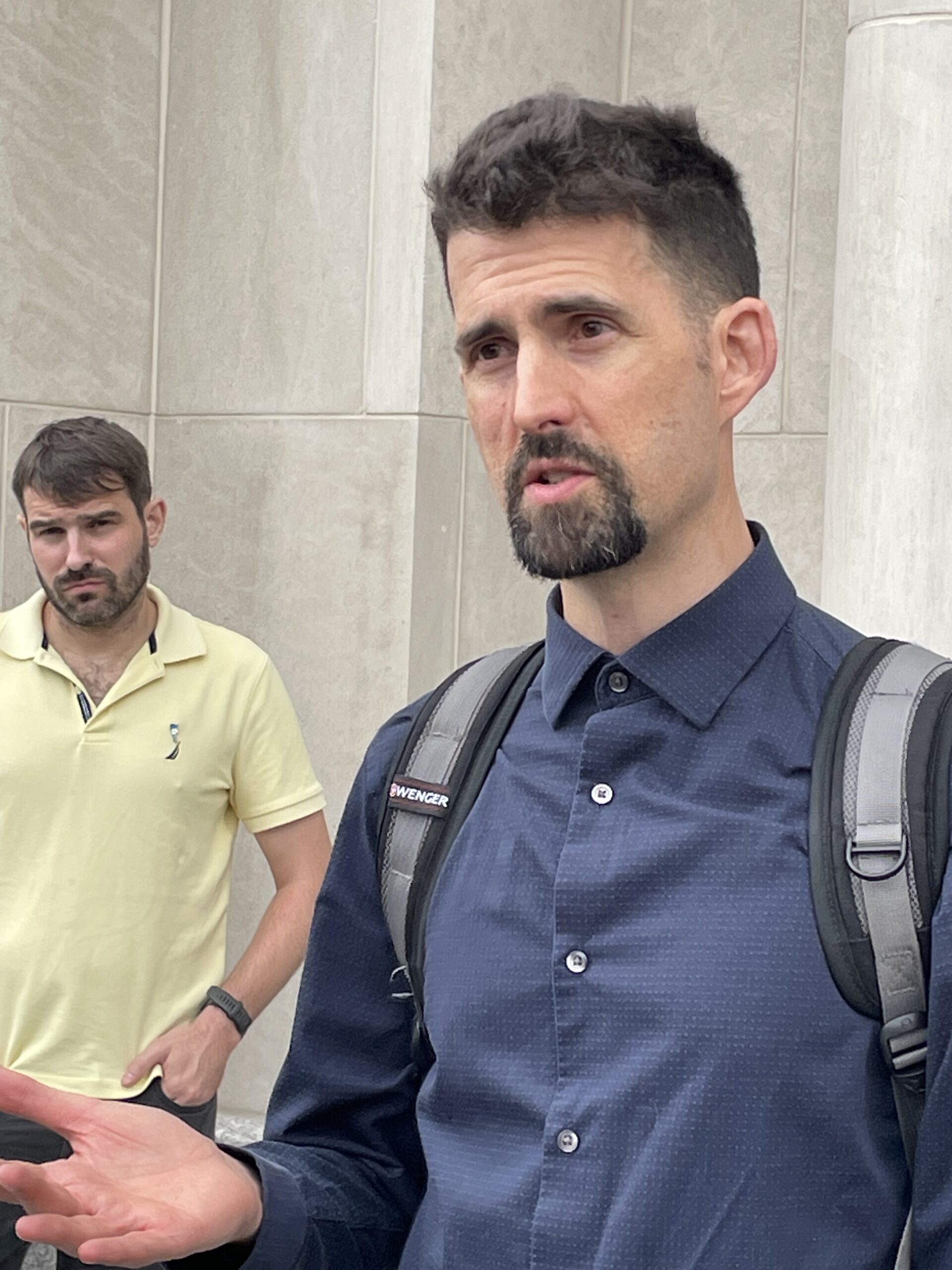Freeman Makes Deal With Feds on Crypto Scam Restitution

After selling Bitcoin to dozens of elderly victims of online romance scams, Free Keene’s Ian Freeman agreed to a restitution deal with federal prosecutors.
A hearing set for Monday in the U.S. District Court in Concord was canceled at the last minute as Freeman’s legal team and federal prosecutors came to terms. Mark Sisti, Freeman’s lawyer, declined to comment on the deal.
“Cannot discuss at this time,” Sisti said.
Judge Joseph LaPlante was considering an order that Freeman pay back millions to the scam victims who bought Bitcoin from Freeman and his cryptocurrency exchanges as part of the romance scams. Evidence about Freeman’s role in the scams was expected to be part of Monday’s hearing.
Freeman is already serving a nine-year prison sentence on convictions for operating an unlicensed money-transmitting business, money laundering, conspiracy to commit money laundering, conspiracy to operate an unlicensed money-transmitting business, and income tax evasion. He moved more than $10 million through his exchanges, according to prosecutors.
Rebecca Viar and other victims told LaPlante last year that Freeman’s exchanges were central to the scams that robbed them of their savings, trust, and dignity.
“Ian Freeman was the planner and instigator of this entire scheme,” Viar told LaPlante in September.
Viar, an elderly widow, was ripped off by an online romance scammer known as Michael Glenn Wilson. The crook, who has so far never been charged, used Freeman’s Bitcoin exchanges to facilitate the crimes, according to prosecutors.
In Viar’s case, she emptied her savings account, cashed out her insurance policy, took out loans, and even sold her dead husband’s truck. She sent all that money right to Freeman, she told LaPlante. Again and again, Wilson didn’t have her send the money to him but instead instructed her to go to Freeman. Through one of Freeman’s many exchanges, Viar bought Bitcoin that was then deposited into a digital wallet Wilson could access.
Prosecutors have argued Freeman either knew or, at best, actively worked to not know that he was facilitating crimes with his cryptocurrency transactions. Freeman was known throughout the Bitcoin community for charging higher fees than other market operators and for asking fewer questions, prosecutors have said.
When he was sentenced in October, Freeman claimed he was tricked by the scammers just like women like Viar.
“I was also a victim of the scammers,” Freeman told LaPlante.
According to Freeman’s telling, he was simply operating the Shire Free Church dedicated to spreading the Good News about Bitcoin when the victims of romance scams and other confidence tricks started buying Bitcoin from his exchange. Those victims were trained by their scammers to lie to Freeman to get around his security system, making him an unwitting accomplice to the scams, he claimed.
“I’m sorry those people were taken advantage of, and I couldn’t stop them all,” Freeman said.
Assistant United States Attorney Georgiana MacDonald told LaPlante that Freeman was a manipulative liar who knew exactly what he was doing when he set up his Bitcoin exchange.
“He is an expert conman who has a spin for everything and who executed a very clever scheme,” MacDonald said.
It’s not all bad news for Freeman. His request to serve his federal sentence in a prison close to Keene was granted last week. Freeman’s wife and friends are still in the Keene area.
Freeman, whose original name is Ian Bernard, was one of the early evangelists for the libertarian movement known as the Free State Project, though he’s no longer part of it. The Free State Project distanced itself from Freeman in 2014 after his repeated public statements in favor of lowering the age of consent for legal sexual activity.
After getting booted from the Free State, Freeman founded the Free Keene community that’s home to former gubernatorial candidate Nobody (born “Rich Paul”); Aria DiMezzo, the self-identified “Trans, Satanic, Anarchist” who ran for Cheshire County sheriff as a Republican; and Chris Cantwell, the alt-right podcaster known as the Crying Nazi.
Both Nobody and DiMezzo ended up pleading guilty for their roles in Freeman’s Bitcoin operation. Cantwell was recently released from federal prison after he was found guilty of threatening another online white supremacist. Freeman distanced himself from Cantwell when Cantwell began espousing violent, alt-right rhetoric. Cantwell is currently out of prison, back in New Hampshire, and trying to revive his online media career.



